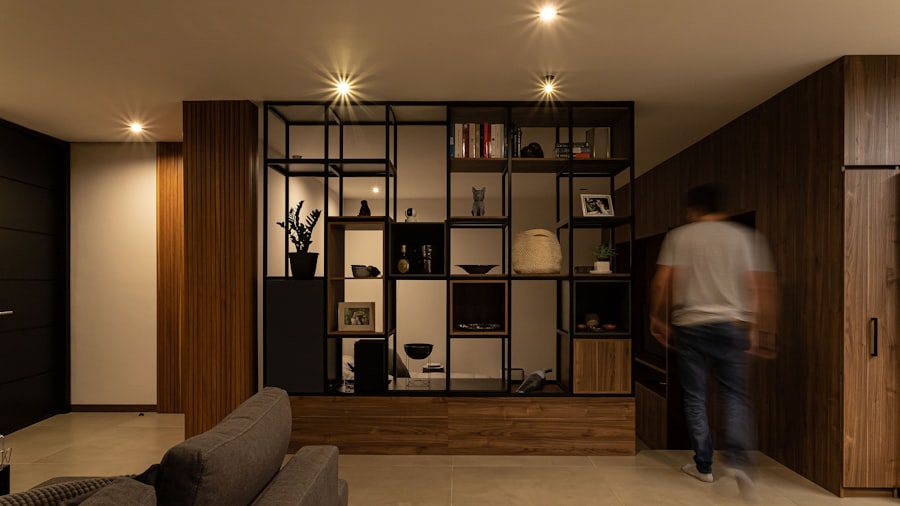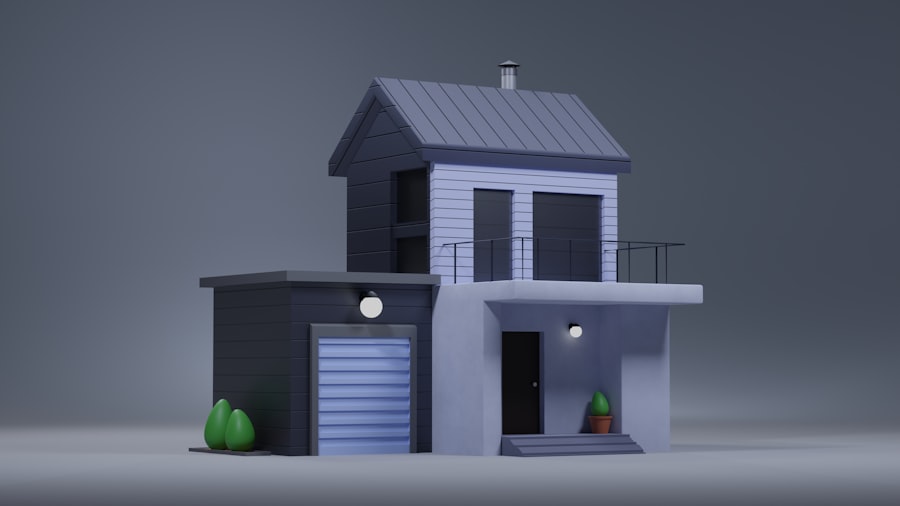Before embarking on the journey of purchasing a mobile home, it is crucial to have a clear understanding of your needs and budget. This initial step serves as the foundation for your entire home-buying experience. Begin by assessing your lifestyle requirements.
Consider factors such as the size of the home, the number of bedrooms and bathrooms, and any specific features that are important to you, such as a yard, a garage, or proximity to schools and shopping centers. For instance, a family with children may prioritize a larger home with multiple bedrooms and a safe outdoor space, while a retiree might seek a smaller, low-maintenance property in a quiet community. Once you have outlined your needs, it is essential to establish a realistic budget.
This involves not only determining how much you can afford for the purchase price but also considering ongoing costs such as property taxes, insurance, utilities, and maintenance. A comprehensive budget will help you avoid financial strain in the future. It is advisable to consult with a financial advisor or use online calculators to get a clearer picture of your financial situation.
Additionally, consider setting aside funds for unexpected expenses that may arise during the home-buying process or shortly after moving in.
Key Takeaways
- Assess your needs and budget before starting your mobile home search.
- Research communities to find the best location and amenities.
- Choose a realtor experienced in mobile homes to guide you.
- Explore various financing options to secure the best terms.
- Tour properties thoroughly and negotiate to get the best deal.
Researching Mobile Home Communities
After clarifying your needs and budget, the next step is to research mobile home communities that align with your criteria. The landscape of mobile home living has evolved significantly over the years, with many communities offering amenities and services that rival traditional neighborhoods. Start by identifying areas that appeal to you based on factors such as location, climate, and community culture.
For example, some communities cater specifically to retirees, offering recreational activities and social events, while others may be family-oriented with playgrounds and schools nearby. When researching specific communities, pay attention to the amenities they offer. Many mobile home parks provide features such as swimming pools, clubhouses, fitness centers, and organized social activities.
Additionally, consider the community’s rules and regulations, as these can vary widely from one park to another. Some communities may have restrictions on pet ownership or require residents to adhere to specific maintenance standards. Online forums and social media groups can be valuable resources for gathering insights from current residents about their experiences living in particular communities.
Identifying the Right Realtor for You

Finding the right realtor is a pivotal step in the mobile home buying process. A knowledgeable realtor who specializes in mobile homes can provide invaluable guidance and support throughout your journey. Start by seeking recommendations from friends or family members who have recently purchased mobile homes or by searching online for realtors with positive reviews in your area.
Look for agents who have experience specifically in mobile home transactions, as they will be familiar with the unique aspects of this market. Once you have identified potential realtors, schedule interviews to discuss your needs and expectations. A good realtor will take the time to understand your preferences and budget while also providing insights into the local market.
They should be able to answer questions about zoning laws, financing options specific to mobile homes, and any potential challenges you may face during the buying process. Establishing a strong rapport with your realtor is essential; you want someone who is not only knowledgeable but also genuinely invested in helping you find the right home.
Exploring Financing Options
| Financing Option | Interest Rate (%) | Loan Term (Years) | Typical Credit Score Required | Down Payment (%) | Pros | Cons |
|---|---|---|---|---|---|---|
| Personal Loan | 6.5 – 36 | 1 – 7 | 620+ | 0 | Quick approval, no collateral needed | Higher interest rates, shorter terms |
| Home Equity Loan | 4 – 10 | 5 – 30 | 650+ | Varies | Lower interest rates, tax-deductible interest | Risk of foreclosure, requires home equity |
| Credit Card | 15 – 25 | Revolving | Good to Excellent | 0 | Flexible repayment, rewards programs | High interest if not paid monthly |
| Small Business Loan | 5 – 20 | 1 – 25 | 680+ | Varies | Large amounts available, tailored for business | Lengthy approval, strict requirements |
| Peer-to-Peer Lending | 6 – 36 | 3 – 5 | 600+ | 0 | Accessible for various credit types | Variable rates, less regulation |
Financing a mobile home can differ significantly from traditional home financing, making it essential to explore all available options thoroughly. Many buyers assume that obtaining a mortgage for a mobile home is similar to financing a conventional house; however, there are unique considerations involved. First, determine whether you are purchasing a new or used mobile home, as this can impact your financing options.
New mobile homes may qualify for more favorable loan terms compared to older models. One common financing option is a chattel loan, which is specifically designed for mobile homes that are not permanently affixed to land. Chattel loans typically have shorter terms and higher interest rates than traditional mortgages but can be an excellent choice for buyers who do not own the land beneath their mobile home.
Alternatively, if you are purchasing a mobile home on owned land, you may qualify for a conventional mortgage or an FHA loan, which can offer lower down payment requirements and competitive interest rates. It is advisable to shop around and compare offers from various lenders to find the best financing solution for your situation.
Touring Potential Properties
Once you have secured financing and identified potential communities, it is time to start touring properties. This phase is both exciting and critical; it allows you to visualize yourself living in each space while assessing its condition and suitability for your needs. When touring mobile homes, pay close attention to both the interior and exterior features.
Look for signs of wear and tear, such as water damage, structural issues, or outdated appliances that may require replacement soon. During your tours, don’t hesitate to ask questions about the property’s history and any renovations that have been made. Understanding how well the previous owner maintained the home can provide insight into potential future issues.
Additionally, consider bringing along a checklist of must-have features versus nice-to-have features to help you evaluate each property objectively. This will ensure that you remain focused on your priorities while also allowing room for flexibility if you encounter homes that exceed your expectations.
Negotiating the Best Deal

Negotiation is an integral part of the home-buying process, and it is essential to approach it with confidence and strategy. Once you have identified a property that meets your needs, work closely with your realtor to formulate an offer that reflects both the market value of the home and your budget constraints. Your realtor can provide valuable insights into comparable sales in the area, helping you determine a fair offer price.
When presenting your offer, be prepared for counteroffers from the seller. It is common for negotiations to involve back-and-forth discussions regarding price, closing costs, and contingencies such as repairs or inspections. Maintain open communication with your realtor throughout this process; they can help you navigate any challenges that arise while ensuring that your interests are protected.
Remember that negotiation is not just about price; consider other factors such as move-in dates or including certain appliances in the sale as part of your overall strategy.
Navigating the Closing Process
The closing process can often feel overwhelming due to its complexity and the multitude of documents involved. However, understanding what to expect can help alleviate some of that stress. Once your offer has been accepted, you will enter into a period of due diligence where inspections and appraisals will take place.
It is crucial to conduct thorough inspections to identify any potential issues with the property before finalizing the sale. As closing day approaches, ensure that all necessary paperwork is in order. This includes reviewing loan documents, title insurance policies, and any agreements related to repairs or contingencies negotiated during the offer process.
Your realtor will play a vital role in guiding you through this stage by ensuring that all documents are accurate and complete. On closing day itself, be prepared to sign numerous documents while also providing any required funds for closing costs or down payments.
Settling into Your New Home
After successfully navigating the closing process, it’s time to settle into your new mobile home and make it truly yours. The transition into a new living space can be both exhilarating and daunting; however, taking proactive steps can help ease this adjustment period. Start by unpacking essentials first—this includes items like kitchenware, bedding, and personal belongings that will make your new space feel comfortable right away.
As you settle in, take time to familiarize yourself with your new community. Engage with neighbors and participate in local events or activities offered within your mobile home park; this can foster connections and create a sense of belonging in your new environment. Additionally, consider personalizing your space through decor or landscaping improvements that reflect your style while adhering to any community guidelines regarding modifications.
Embracing this new chapter in your life involves not only making physical changes but also cultivating relationships within your community that will enrich your living experience for years to come.



